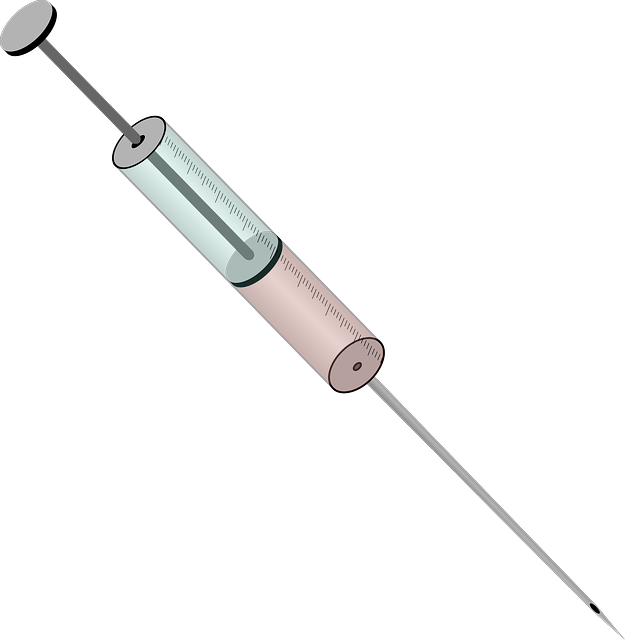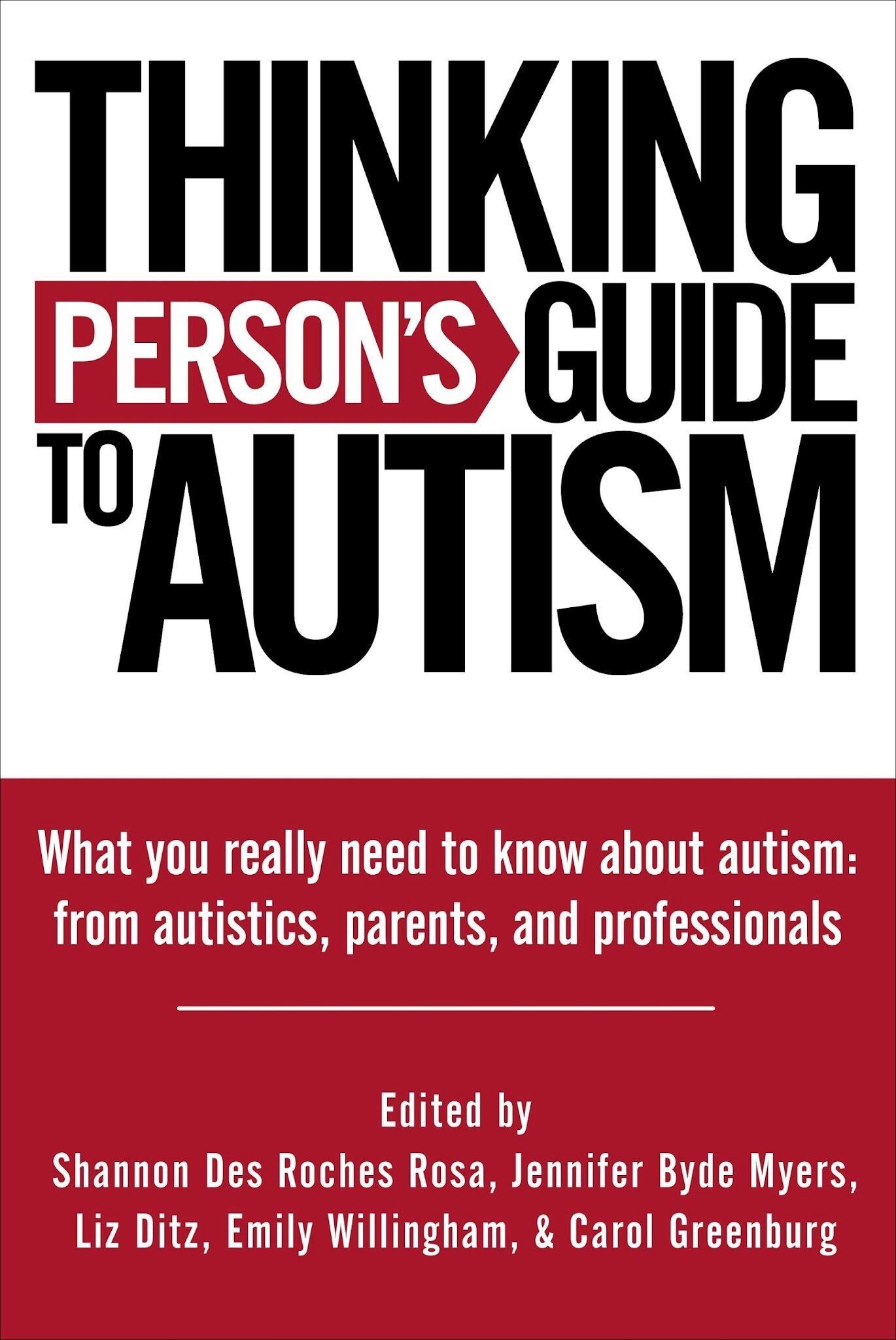Emily Willingham emilywillinghamphd.com We want April — Autism Acceptance Month — to matter, to help further acceptance and understanding of autistic experiences, happiness, and rights for autistic people of all ages and abilities. We will be publishing Autism Acceptance posts and pictures all month long. -TPGA Editors What does it mean to be neurotypical or not? Someone told me via email that I seem to be “demand(ing) all the trappings of neurotypical privilege” in public while saying that I’m not neurotypical, and I’m wondering about many aspects of it. First, I’ll establish that I am what I say I am. That means that I’m a scientist, writer, editor, mother, life partner, and friend. There are adjectives to describe me, as well, but that’s a longer list, and I’ll avoid both the embarrassment and the indulgence. What I do know is that I’ve spent a lifetime being anything but neurotypical (I’m…
Tag: Emily Willingham
Emily Willingham www.emilywillinghamphd.com www.forbes.com/sites/emilywillingham Trigger warning: discussion of Judge Rotenberg Center, aversives, mistreatment of autistics Some practices used as “therapy” for autism in the United States amount to torture, a U.N. representative says. The U.N.’s Juan Mendez is the organization’s special rapporteur on torture, and in his report examining torture worldwide, he’s called out the only facility in the United States that uses “skin shocks” to ‘treat’ people with severe mental illness or developmental disabilities, including autism. That facility is the Judge Rotenberg Center (JRC), formerly the Behavioral Research Institute. While it once was located in California and then moved to Rhode Island, the facility is now sited in Massachusetts. Mendez expresses concern in his report (p. 84) that if Massachusetts becomes too hot to hold the JRC, the center might simply relocate again, and he urges action at the federal level to end the use of such aversives…
Emily Willingham www.emilywillinghamphd.com www.forbes.com/sites/emilywillingham It’s happened again at Fox News. After taking down a story last year that was packed with misinformation about genetically modified foods — headlined “What you need to know“ — Fox has now offered up another similarly underevidenced article, this time headlined “Can autism be prevented?” Short answer: No, not usually. In spite of that, the article goes longer and turns to one ‘Rober’ (sic) Melillo, who practices something called “chiropractic neurology.” The unbylined article says about autism: “The statistic rates used to be one in 150 — so how did we get these new numbers? Dr. Rober Melillo, co-founder of the Brain Balance Achievement Centers, spoke with Dr. Manny Alvarez, senior managing health editor for FoxNews.com, about the science behind autism, as well the facts and myths surrounding the condition.” Melillo, in fact, does neither. Instead, he exhibits a rather basic grasp of genetics, blames…
Emily Willingham www.emilywillinghamphd.com www.forbes.com/sites/emilywillingham Let’s start with the headlines blaring the news about a recent autism study. They almost invariably use the phrase “grow out of autism,” even though the study itself does not use that phrase or even reference “grow” except to talk about head circumference. Instead, the authors of the report, published in The Journal of Child Psychology and Psychiatry, use the term “optimal outcomes” to describe what they detected in a group of 34 people who were diagnosed as autistic when they were under age 5. As the study authors themselves state, this idea that autistic people might show reduced deficits to the point of losing a diagnosis is not new. In fact, first author Deborah Fein and colleagues cite studies identifying frequencies of “optimal outcomes” as high as 37% among autistic people. The lingering open questions relate to whether or not the autistic people in these…
Emily Willingham www.emilywillinghamphd.com www.forbes.com/sites/emilywillingham When we wrote previously about the use of MMS, a bleach compound, administered orally or as enemas on the promise that it would “cure” autistic people, we received many, many comments in support (or defense) of using MMS. Many people exhorted us to ‘do our research,’ to not ‘jump to conclusions.’ One of the most recent comments went as follows: “Your ‘argument’ falls down immediately. It is not bleach — the chemical structure is completely different. This is where unbiased researchers like me stop reading — you can’t even get the chemistry part correct so why bother. If you can’t be bothered to research your subject then please don’t write about it, it really is that simple.” Weary of this kind of assertion and the ad hominems that always seem to accompany the defensiveness, I offered to this particular commenter the following suggestion: “Why don’t you…
Emily Willingham www.emilywillinghamphd.com www.forbes.com/sites/emilywillingham Image source: pixabay.com Chelation is a “treatment” for autism promoted by the likes of Jenny McCarthy’s Generation Rescue group and others in which a chemical that binds metals is (usually) injected or infused into an autistic child with the intent of removing said metals from the blood. Now a review of the scientific studies on chelation and autism has concluded that not only is chelation ineffective, it can be dangerous. Indeed, chelation appears to be a case study of the dangers in using children as guinea pigs for random autism-causation hypotheses with no basis. According to Tonya Davis, Ph.D., lead author of the paper, quoted in a news story about the publication: “Chelation therapy represents the ‘cart before the horse’ scenario where the hypothesis supporting the use of chelation was not validated prior to using it as a form of treatment. Evidence does not support the hypothesis…
2012 was an eventful year at Thinking Person’s Guide to Autism: Our book drew much acclaim, three new editors joined our team, we featured more than 30 profiles of Autistic kids and adults for April’s Slice of Life series, we went to the International Meeting for Autism Research in Toronto, our Facebook community hit and surpassed 10,000 members while remaining a nexus for thoughtful autism news and conversation, and we were cited and our editors were interviewed frequently — especially whenever autism made headlines. We also continued to publish thought-provoking and educational essays and interviews on this site, and all enjoyed and learned from the ensuing discussions. The 15 TPGA posts (with excerpts) below were 2012’s most popular — meaning hotly debated and/or praised — and give a sense of what we in the Thinking Person’s Guide to Autism community had on our minds these past twelve months. Thank you…
Some news coverage in the last 24 hours has mentioned autism in the context of the tragedy in Connecticut, particularly referencing Aspergers or “high-functioning” autism. Talking heads have brought up the “empathy” factor when discussing autism, and I’d like to set some of the record on that straight. Empathic ability comes in two forms. One is the social ability to recognize the emotion someone is feeling by following social cues, subtle vocal fluctuations, and other nonverbal communications. Psychopaths, for example, might be quite good at reading people, at applying this cognitive empathy and then possibly exploiting it. Autistic people, on the other hand, generally tend not to be that great at this kind of recognition in non-autistic people. After all, the hallmark of autism is difficulty navigating this territory and registering the meaning of a nonverbal language that is unfamiliar to them. Worth noting, non-autistic people also seem to struggle…
Our science editor Emily Willingham live-tweeted Thursday’s Congressional autism hearing from the perspective of a scientist, autism parent, critical thinker, and human. She Storified and annotated the experience, turning offensive keywords and laughable pseudoscience terms into her own version of Autism Bingo. Enjoy!
Emily Willingham emilywillinghamphd.com Stomach Endoscopy. Source: Wikimedia Commons Are autism, gut inflammation, and immune issues linked? One recent sponsored supplement published in the journal Pediatrics argues that they are. There’s certainly some evidence, although quite mixed, hinting at a link between immune or gut issues and a subset of people with autism, although which one triggers the other is nowhere near resolved. What one might hope is resolved is that it’s difficult to construct solid scientific arguments on a shaky foundation that incorporates retracted papers. Th Pediatrics GI-autism supplement reflects information derived from a symposium conducted in 2009, one convened to talk about GI problems and autism. The authors are recognizable as those whose interest has very much been focused on autism as inflammation, particularly gut inflammation. The problem has been pinning down specifically what that inflammation might be and where it occurs. To demonstrate that such evidence has been identified,…



